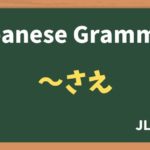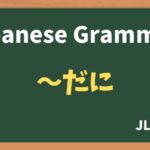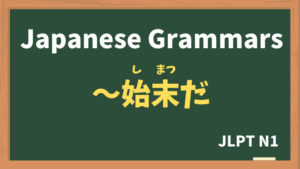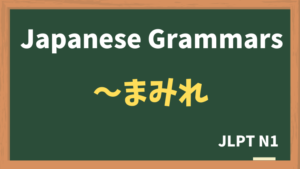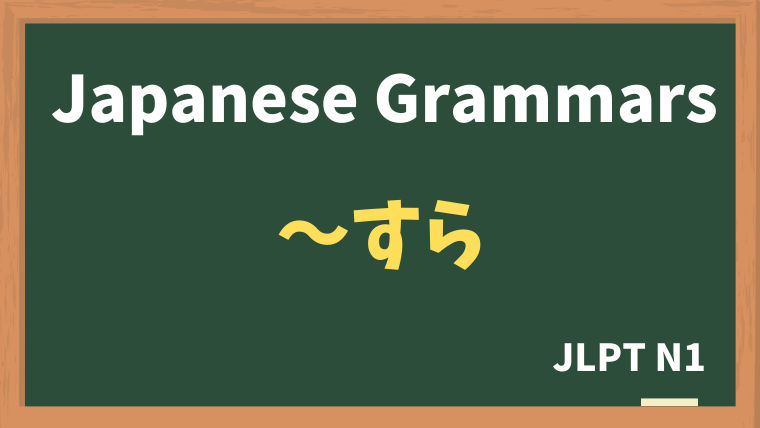
Explanation:〜すら
fa-check-circleMeaning
"〜も / 〜さえ"
”even”
Means the same as "〜さえ"
A formal and somewhat literary way to express "even" or "not even" in Japanese. It is used to emphasize an extreme example, often highlighting how something basic or fundamental is involved in a situation.
fa-check-circleForm
V(dictionary form)こと + すら
N + すら
fa-check-circlePoints
- Extreme Emphasis: "〜すら" is used to emphasize that something extreme, unexpected, or minimal is being mentioned.
- Formal/Expressive: It tends to appear in formal writing, speeches, or literary contexts, rather than in casual conversation.
- Negative or Positive Contexts: It can be used in both positive and negative contexts, depending on whether it highlights something that happened (even this happened) or something that didn’t (not even this happened).
fa-check-circleJLPT Level
N1
fa-check-circleNote
① よくないことに使うことが多いです。
② 驚き(surprise)や呆れた(shocked)気持ちが含まれる。
Sample sentenes
マークさんは5年も日本に留学したのに、簡単な会話すらできない。
Despite studying in Japan for five years, Mark can't even manage simple conversations.
彼は酔っ払っていて、立つことすらでない。
He was so drunk that he couldn't even stand up.
日本語の先生ですら読めない漢字がある。
There are kanji characters that even Japanese teachers can't read.
足を怪我して歩くことすらできない。
He injured his leg and can't even walk.
仕事が忙しくて、日曜日すら休めない。
He's so busy with work that he can't even take a day off on Sundays.
Vocabulary
| Japanese |
English | |
| 酔っぱらう | よっぱらう | to get drunk |
Similar Sentence Patterns

